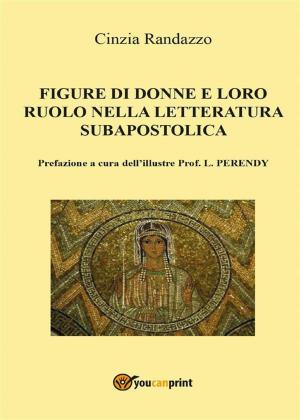| Author: | Mary Wollstonecraft Shelley | ISBN: | 9788827809426 |
| Publisher: | Youcanprint | Publication: | January 29, 2018 |
| Imprint: | Language: | English |
| Author: | Mary Wollstonecraft Shelley |
| ISBN: | 9788827809426 |
| Publisher: | Youcanprint |
| Publication: | January 29, 2018 |
| Imprint: | |
| Language: | English |
This highly imaginative work of Mary Shelley's twenty-sixth year contains some of the author's most powerful ideas ; but is marred in the commencement by some of her most stilted writing. The account of the events recorded professes to be found in the cave of the Cumsean Sibyl, near Naples, where they had remained for centuries, outlasting the changes of nature and, when found, being still two hundred and fifty years in advance of the time foretold. The accounts are all written on the sibylline leaves; they are in all languages, ancient and modern; and those concerning this story are in English. We find ourselves in England, in the midst of a Republic, the last king of England having abdicated at the quietly expressed wish of his subjects. This book, like all Mrs. Shelley's, is full of biographical reminiscences; the introduction gives the date of her own visit to Naples with Shelley, in 1818; the places they visited are there indicated ; the poetry, romance, the pleasures and pains of her own existence, are worked into her subjects ; while her imagination carries her out of her own surroundings. We clearly recognise in the ideal character of the son of the abdicated king an imaginary portrait of Shelley as Mary would have him known, not as she knew him as a living person. To give an adequate idea of genius with all its charm, and yet with its human imperfections, was beyond Mary's power. Adrian, the son of kings, the aristocratic republican, is the weakest part, and one cannot help being struck by Mary Shelley's preference for the aristocrat over the plebeian.
This highly imaginative work of Mary Shelley's twenty-sixth year contains some of the author's most powerful ideas ; but is marred in the commencement by some of her most stilted writing. The account of the events recorded professes to be found in the cave of the Cumsean Sibyl, near Naples, where they had remained for centuries, outlasting the changes of nature and, when found, being still two hundred and fifty years in advance of the time foretold. The accounts are all written on the sibylline leaves; they are in all languages, ancient and modern; and those concerning this story are in English. We find ourselves in England, in the midst of a Republic, the last king of England having abdicated at the quietly expressed wish of his subjects. This book, like all Mrs. Shelley's, is full of biographical reminiscences; the introduction gives the date of her own visit to Naples with Shelley, in 1818; the places they visited are there indicated ; the poetry, romance, the pleasures and pains of her own existence, are worked into her subjects ; while her imagination carries her out of her own surroundings. We clearly recognise in the ideal character of the son of the abdicated king an imaginary portrait of Shelley as Mary would have him known, not as she knew him as a living person. To give an adequate idea of genius with all its charm, and yet with its human imperfections, was beyond Mary's power. Adrian, the son of kings, the aristocratic republican, is the weakest part, and one cannot help being struck by Mary Shelley's preference for the aristocrat over the plebeian.















